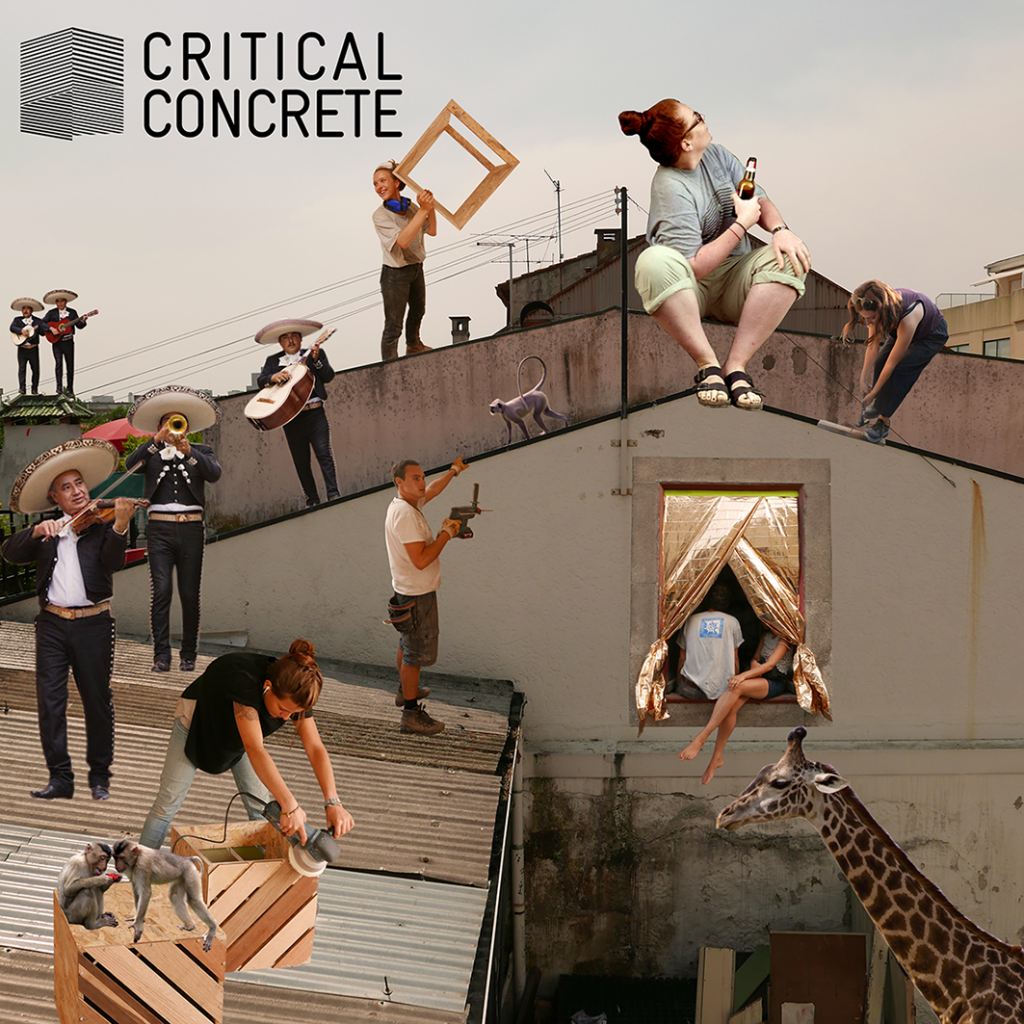
CRITICAL CONCRETE
Architecture and social engagement
Critical Concrete, is a non-profit organisation taking on challenges linked to the construction industry and aiming for sustainable practices. Located in Porto, where the need for affordable housing solutions is ever noticeable, they challenge the regular dynamism of real estate development and promote new mechanisms to rehabilitate social housing, and improve public and cultural spaces in low-income communities. They also question the political meaning of sustainability in architecture, which has ambiguous connotations. For Critical Concrete, their understanding of sustainable architecture means: long lasting and easily repairable structures, made of locally sourced materials and upcycled waste. Critical Concrete has focused on developing projects that promote social inclusion which combat poverty and discrimination through participatory workshops on social and sustainable architecture in a range of methods which include education, research, design, and consulting.

LUÍSA MONTES
Participatory architecture
After my studies in Architecture between Seville and Puerto Montt (southern Chile). I understood that architecture could be an instrument of change and I finished my degree with a research work on participatory urbanism based on squatting. Public space belongs to the citizen and participatory practices encourage rooting and networking in a community.
After the pandemic I travelled to Paris and spent a year with Batisseurs Compagnons, where I learned a lot of DIY and saw the power of participatory and associative projects in a practical and real way.
Now I work halfway between conventional architecture and trying to open a space for other forms of intervention in the public space with Chacho mi Tierra, an association in birth with much to offer for change towards sustainability.

HÉLÈNE VEIGA GOMES
Social anthropology | analysis techniques / participation
With a PhD in social anthropology, Hélène Veiga Gomes works at the intersection of urban studies and visual culture. Her research focuses on the process of urban transformation in Lisbon and uses images both as an object of analysis and as a means to disseminate her research. In order to interconnect academic, urban and artistic languages, she directs the studio H+V/G, where she develops projects with urban entities that want to think the city in an inclusive and sustainable way. She is also a research professor in urban anthropology at schools of architecture.

EMILIANO DANTAS
Visual anthropology
Emiliano Dantas holds a PhD in Anthropology from the University Institute of Lisbon/ISCTE-IUL. He is Master in Anthropology by the Federal University of Pernambuco/UFPE and graduated in Social Communication with qualification in Photography by the Faculdades Integradas Barros Melo/AESO. He was a professor at AESO, where he taught subjects in the Bachelor of Photography, Cinema and Audiovisual, and Visual Arts. He was an ISCTE grant holder for three years, 2016-2017, 2017-2018, 2018-2019, to develop the projects of the Learning Workshops and technical and pedagogical activities in the Audiovisual Laboratory of CRIA. He taught, as a guest assistant, in the Anthropology degree of ISCTE and in the Post-Graduation in Digital Visual Cultures of the same university, between 2018 and 2020. He was a lecturer in short courses offered by the Network Centre for Research in Anthropology CRIA/ISCTE-IUL, in 2018 and 2019. He has held photographic exhibitions of his anthropological research work in Brazil, Cuba, Portugal and São Tomé and Príncipe.